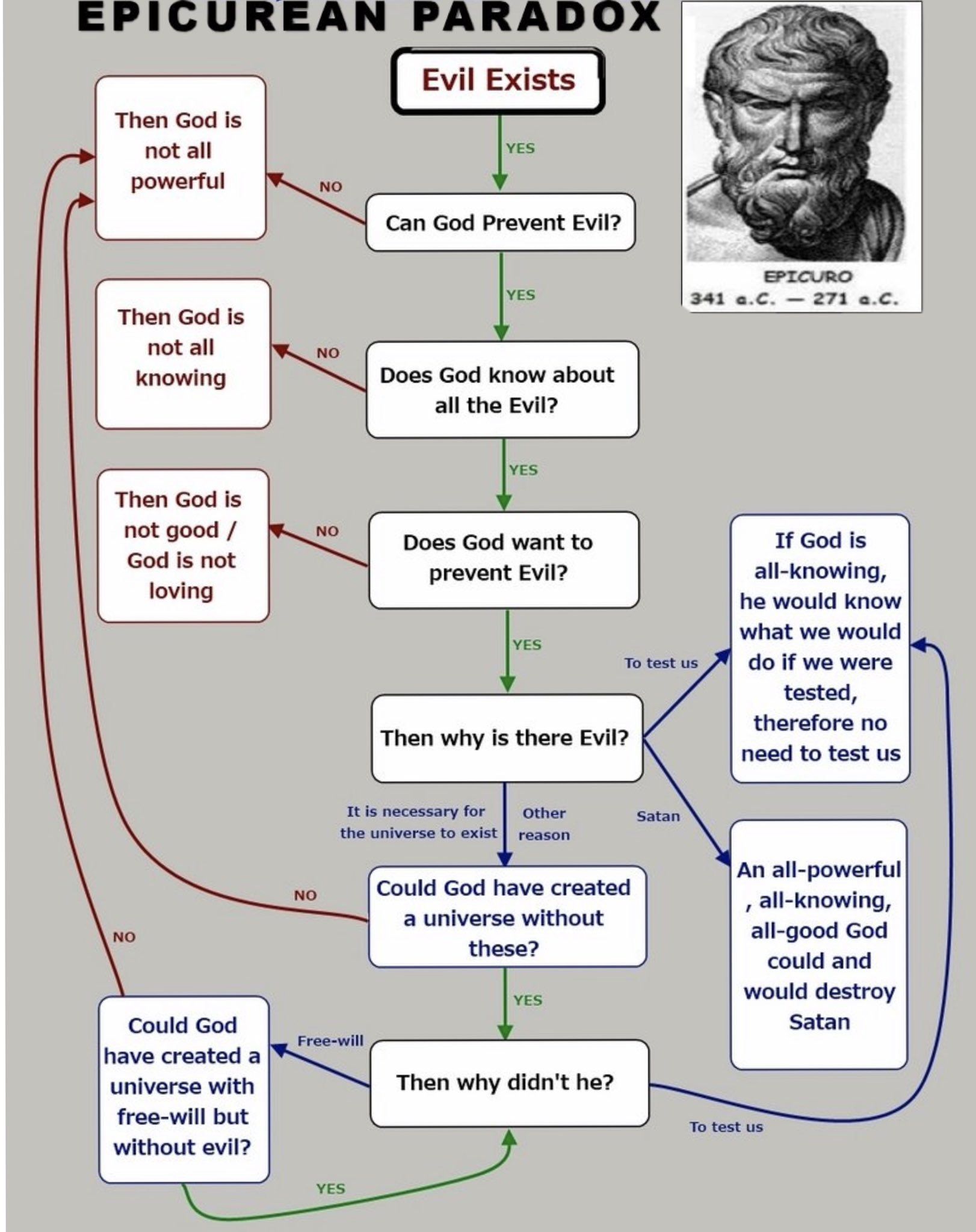this post was submitted on 05 Jul 2025
149 points (100.0% liked)
Atheist
205 readers
94 users here now
Atheists, skeptics, humanists, universalists, and agnostics.
founded 6 days ago
MODERATORS
you are viewing a single comment's thread
view the rest of the comments
view the rest of the comments

I've never liked these sorts of arguments because they appear to presuppose a humanized God, who follows a similar thought process which is expected to be understandable to us. It also asserts before any arguments that evil must definitely be an immutable force in the world, while much of biblical teachings suggest that evil is very much mutable in many ways.
It is interesting how you attempt to brush off the entire discussion of the theodicy with that. Not terribly convincing, but at least we know the reason why you did it.
The fact that you have not bothered to reply to anybody on this is revealing enough. It is funny how deceiving theists are when it comes to this. They really are sly creatures willing to do anything for their preconcieved conceptions.
I'll never cease to be amused by the online phenomena where people manage to get themselves into heated debates with you while you're just talking off the cuff about subjects which interest you.
The core of the argument arises from the hellenistic idea of god being a perfect being. Perfection requires omnipotence, omniscience omnibenevolence (and some other characteristics that we can ignore right now). Philosophers could demonstrate that these ideas are in contradiction of what we see in our world. All of this was well known before Christianity developed which is why they bear the name of the greek philosopher Epicurus.
Christianity arose in Israel and the hellenistic near east in both philosophical traditions. For example Paul who was of Jewish ancestry, grew up in a Roman city and spoke Greek, Aramaic and Hebrew. He had both a formal Jewish and Greek education and was clearly understood Stoic philosophy. Later, the church fathers shaped christian doctrine with their knowledge of philosophy, in particular St Augustine introduced many neo-Platonist ideas in which the idea of god is 'perfect'.
The idea of perfection immediately leads to the omni-powers discussed above. It also leads god to existing outside time (for if you are in time, you change. If you change you must either become better (i.e. you were not perfect) or worse (i.e. you are now not perfect)). It also allows god to be the prime mover or original cause of the universe recapitulating well rehearsed Greek philosophy of the previous centuries.
Again, all these arguments are pure logic exploring what perfect knowledge, perfect power and perfect goodness mean, and comparing this to the state of the world and how the world was brought into being. They don't require anything of god except to be perfect.
Well, any sort of discussion on the subject needs a god who follows thought processes which is expected to be understandable to us, otherwise there is nothing to discuss. The theist in the scenario can proclaim fideism, and that is an acceptable stance to take, but it does also prevent any attempts at theist rationalisations besides the actual fideism, and hence also any need for people to take heed for the fideists religious considerations.
No, I don't see it doing anything of the sort.